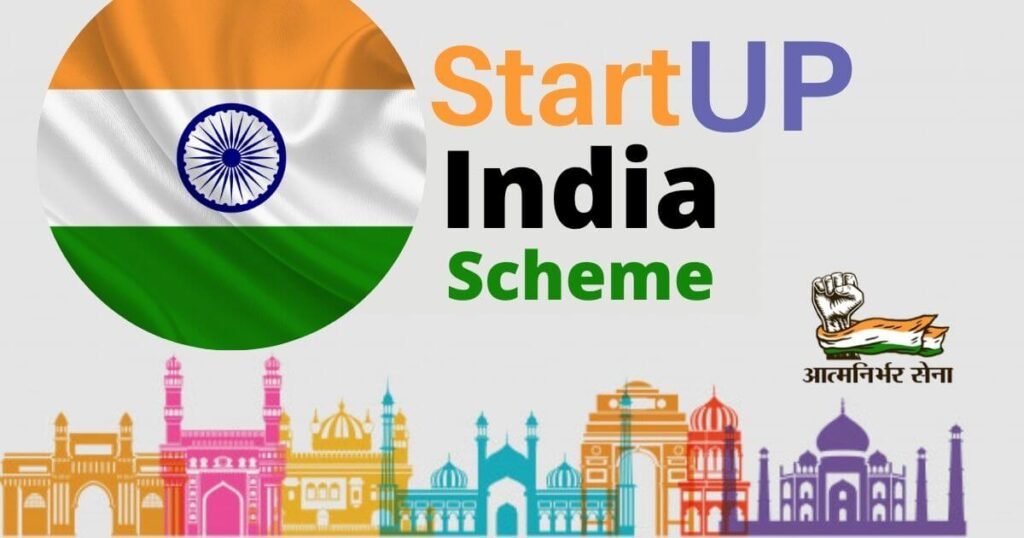
Revitalizing Startups for a Resilient India
This analysis delves into the pivotal role of startups in driving India’s economic transformation, exploring their contributions to innovation, job creation, and technological advancement. It also examines the challenges faced by the startup ecosystem and outlines actionable measures to ensure sustained growth and global competitiveness.
Why in News
India’s startup ecosystem, the third-largest globally, has emerged as a hub for innovation and entrepreneurship. The Startup India initiative, launched in 2016, has created a robust foundation for nurturing startups across diverse sectors. However, recent challenges like funding constraints, regulatory hurdles, and limited scalability in smaller cities highlight the need for policy recalibration and enhanced support mechanisms to sustain this momentum.
Key Highlights
India’s Startup Journey
• Startup India Initiative (2016): Aimed to nurture innovation by reducing regulatory barriers and democratizing access to resources.
• Achievements:
o Over 1,17,254 startups recognized by DPIIT as of December 2023.
o Generated 12.42 lakh direct jobs, with indirect job creation in logistics, marketing, and ancillary services.
o Supported entrepreneurship in Tier 2 and Tier 3 cities.
Contribution of Startups to India’s Economy
1. Employment Generation
o Startups are major job creators, employing people across diverse sectors such as IT, e-commerce, and fintech.
o Ancillary employment: Services like logistics and vendor management further boost the economy.
2. Innovation and Technology Adoption
o Startups are pioneers in leveraging AI, blockchain, and IoT for real-world problems.
o Examples:
Ather Energy: Revolutionizing the EV sector.
Garuda Aerospace: Improving agricultural productivity through drones.
3. Boosting Exports and Global Outreach
o Startups like Zoho and Freshworks dominate the global SaaS (Software-as-a-Service) market.
o India’s SaaS revenue is projected to grow from $13 billion in 2023 to $100 billion by 2030.
4. Financial Inclusion
o Fintech startups like PhonePe and Paytm expand digital financial services in rural India.
o UPI Transactions: Reached 16.73 billion in December 2024.
5. Strengthening the Rural Economy
o Agritech startups: Provide real-time solutions to farmers (e.g., DeHaat).
o Solar startups: Address rural energy needs with cost-effective solutions.
6. Women Empowerment
o 18% of startups in India are women-led.
o Programs like NSRCEL Women Startup Program at IIM Bangalore support female entrepreneurship.
7. Sustainable Growth
o Startups in renewable energy contribute to India’s green energy goals.
o Example: ReNew Power aligns with India’s target of 500 GW renewable energy capacity by 2030.
8. Attracting Foreign Investment
o Deep-tech startups attracted $6.73 billion in funding.
o High-profile successes like Ola Electric boost global investor confidence.
9. Supporting MSMEs
o Digital tools and market access provided by startups enable MSMEs, which contribute 30% to GDP.
________________________________________
Challenges in India’s Startup Ecosystem
1. Funding Constraints
o Funding Winter: A 73% drop in fundraising in 2023 caused over 35,000 startups to shut down.
o Limited access to seed funding and dependence on foreign investors.
2. Regulatory Burdens
o Complex tax laws, including the Angel Tax (Section 56(2)(viib)), discourage investments.
3. Skilled Talent Shortage
o India ranked 103rd in Global Talent Index (2023), with significant brain drain.
4. Infrastructure Gaps in Tier-2 and Tier-3 Cities
o Limited high-speed internet and incubation centers hinder startup scalability.
5. Gender Inequality
o Women-led startups receive less than 3% of venture capital funding.
6. High Startup Mortality Rates
o 90% of startups fail within five years, often due to poor market research and operational inefficiencies.
7. Weak Industry-Academia Collaboration
o Unlike the U.S., where institutions like Stanford drive startups, India lacks strong academia-startup synergies.
8. Cybersecurity Risks
o Startups face challenges with data privacy and cyber threats, despite the Digital Personal Data Protection Act, 2023.
________________________________________
Measures to Enhance India’s Startup Ecosystem
1. Simplifying Regulations
o Expand initiatives like National Single Window System for ease of doing business.
o Remove ambiguities in angel tax policies.
2. Boosting Early-Stage Funding
o Expand Startup India Seed Fund Scheme.
o Create a dedicated venture debt fund under SIDBI.
3. Promoting Women Entrepreneurship
o Tailor mentorship programs and sector-specific training for women.
o Launch dedicated funds for women-led startups.
4. Strengthening Industry-Academia Collaboration
o Promote Atal Innovation Mission (AIM) and NIDHI programs.
o Establish innovation labs in premier institutions like IITs and IIMs.
5. Empowering Rural Startups
o Focus on building digital and physical infrastructure under the Digital India Initiative.
6. Encouraging Green Startups
o Align startups with National Green Hydrogen Mission and FAME initiatives.
7. Improving Skilling
o Introduce specialized modules under Pradhan Mantri Kaushal Vikas Yojana (PMKVY).
8. Enhancing Market Access
o Strengthen platforms like ONDC for better supply chain integration.
________________________________________
Key Terms and Definitions
• SaaS (Software-as-a-Service): Software delivery model where services are provided online.
• Angel Tax: Tax levied on investments in startups exceeding fair market value.
• UPI (Unified Payments Interface): Real-time payment system facilitating interbank transactions.
• Deep Tech: Innovations driven by R&D in AI, quantum computing, and similar areas.
• Agritech: Technology-driven solutions for agriculture.
________________________________________
Conclusion
India’s startups are pivotal to economic growth, innovation, and sustainability. By addressing regulatory challenges, improving funding access, and fostering inclusion, India can sustain its startup momentum and drive inclusive growth. Startups also play a crucial role in achieving SDGs like Decent Work (SDG 8) and Industry Innovation (SDG 9), ensuring long-term progress for a resilient India.




